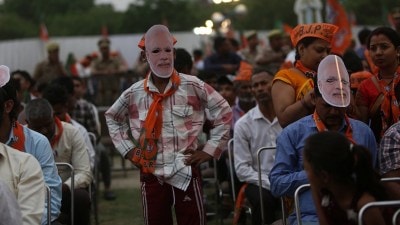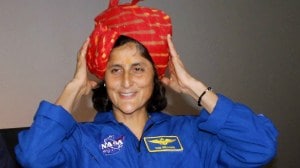- India
- International
Living life vs avoiding death: Surgeon and writer Gawande dissects the choice
The health system, he warned, was becoming a threat to individual well-being.
On Delhi’s first chilly evening on Thursday, US-based surgeon-writer Atul Gawande, author most recently of Being Mortal, provided cold reason — and warm comfort.
Delivering the BBC Reith Lecture in Delhi, his fourth and last in the series this year on medicine and public health, Gawande came “full circle” back to where his doctor parents started their journey — India. His mother, a first-generation migrant to the US from Ahmedabad, paediatrician Sushila Gawande, watched as her son drew an arc joining milestones in his personal life to those in the world of public health.
Just as his ancestors were forced to labour to pay off debt and then worked towards becoming successful agriculturists, Gawande said, Indian health issues, too, had changed from just malnutrition to diabetes or cardiovascular conditions.
Using the example of how China and India have recently “medicalised childbirth,” he talked of the see-saw between too little C-sections and too much of it, the limitations of using technology, the emergence of superbugs out of abuse of antibiotics and the problems that come with the use of too much imaging equipment.
The health system, he warned, was becoming a threat to individual well-being.

Gawande is best known for his aviation industry-inspired “checklists,” a series of procedures medical personnel need to tick off — including basics like “has the midwife washed her hands with soap and water?”
Referring to his work on studying woman and child mortality in UP, Gawande underlined the need for the developing world to not replicate West’s mistakes. Just trying to stave off mortality cannot be the sole goal, he said, but recognising that people “have priorities much beyond just adding another day to their lives.”
Medicine needs to look at creating systems that support well-being for large parts of human life, while recognising the inevitability of fading away and mortality, he said.
He wrapped up with a moving example of an 82-year-old homeless widow he met at a Delhi charity. With “two changes of clothes, teeth like lonely pebbles, costume jewellery and a few photographs”, she was able to make the new charity her home.
What helped was that the staff, by giving her the “charge of helping organise food for other residents”, gave her a sense of purpose. This, despite the place being “one of the most frightening places he had been to”, helped Gawande understand the essentials of well-being.
Few in the packed house disagreed.
Apr 25: Latest News
- 01
- 02
- 03
- 04
- 05







































